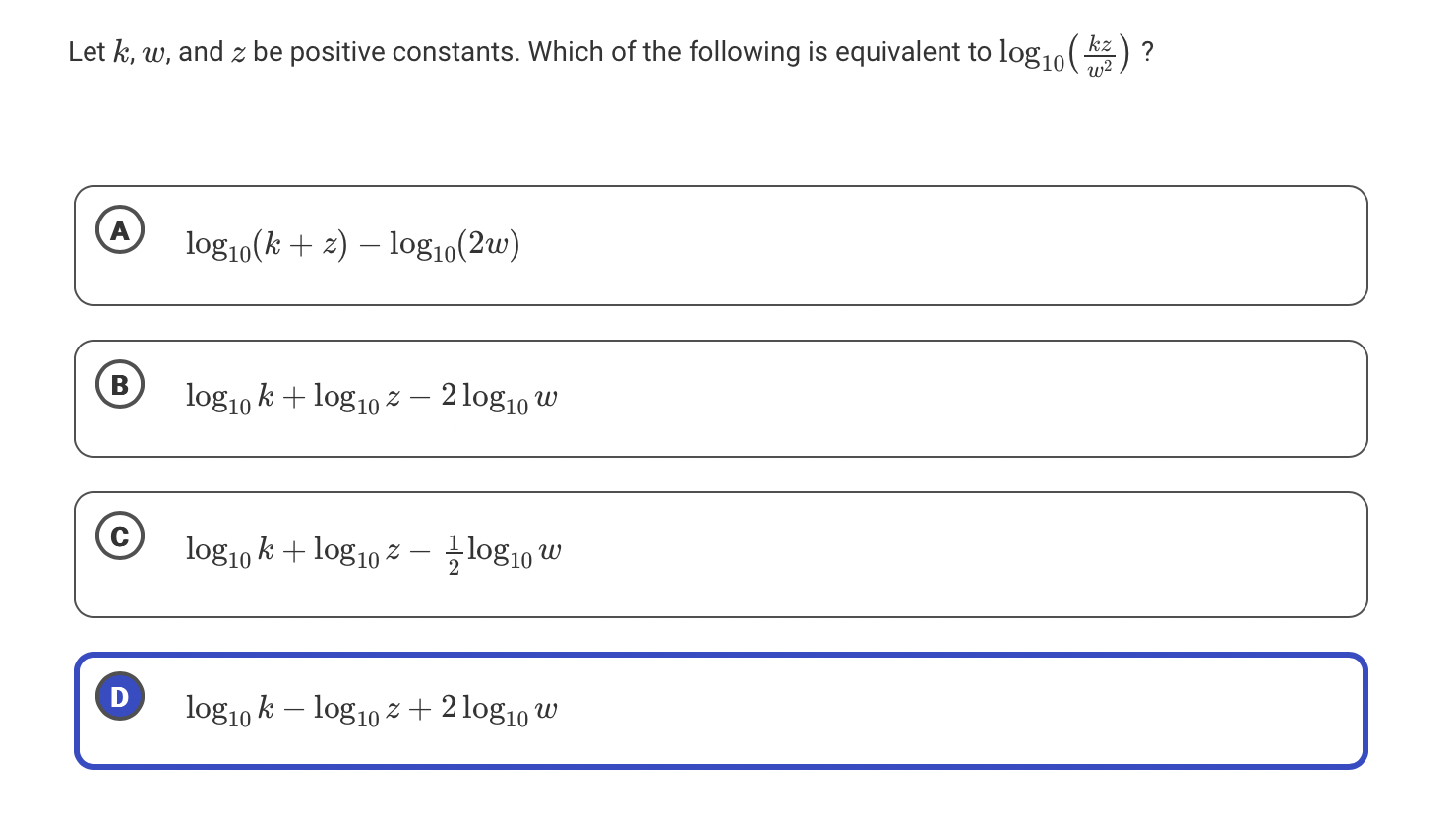Let k, w, and z be positive constants. Which of the following is equivalent to log10(kz/w²)?

Understand the Problem
The question is asking which expression is equivalent to the logarithmic expression log10(kz/w²). This involves applying logarithmic properties such as the quotient rule and the product rule to simplify and rearrange the given expressions.
Answer
The equivalent expression is: $$ \log_{10}k + \log_{10}z - 2\log_{10}w $$
Answer for screen readers
The equivalent expression is:
$$ \log_{10}(k) + \log_{10}(z) - 2\log_{10}(w) $$
This matches option B:
$$ \log_{10}k + \log_{10}z - 2\log_{10}w $$
Steps to Solve
- Apply Logarithmic Properties
Start with the expression to simplify:
$$ \log_{10}\left(\frac{kz}{w^2}\right) $$
Using the quotient rule of logarithms:
$$ \log_{10}\left(\frac{A}{B}\right) = \log_{10}(A) - \log_{10}(B) $$
We can rewrite it as:
$$ \log_{10}(kz) - \log_{10}(w^2) $$
- Further Simplification
Now apply the product rule to the first part and the power rule to the second part:
- Product rule:
$$ \log_{10}(AB) = \log_{10}(A) + \log_{10}(B) $$
- Power rule:
$$ \log_{10}(A^n) = n \log_{10}(A) $$
Using these, we have:
$$ \log_{10}(k) + \log_{10}(z) - \log_{10}(w^2) $$
This becomes:
$$ \log_{10}(k) + \log_{10}(z) - 2\log_{10}(w) $$
- Combine the Expression
Now, combine all the parts together:
$$ \log_{10}(k) + \log_{10}(z) - 2 \log_{10}(w) $$
This expression is equivalent to:
$$ \log_{10}(k) + \log_{10}(z) - \log_{10}(w^2) $$
Thus, our simplified expression matches one of the given options.
The equivalent expression is:
$$ \log_{10}(k) + \log_{10}(z) - 2\log_{10}(w) $$
This matches option B:
$$ \log_{10}k + \log_{10}z - 2\log_{10}w $$
More Information
The laws of logarithms allow for the simplification of logarithmic expressions, making it easier to evaluate or compare various mathematical expressions.
Tips
- Misapplying the logarithmic properties.
- Forgetting the factor associated with squared terms, usually leading to an incorrect sign or coefficient.
- Confusing the product and quotient rules of logarithms.
AI-generated content may contain errors. Please verify critical information